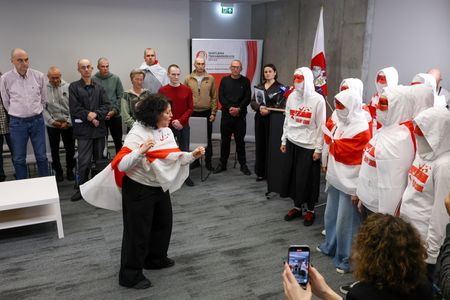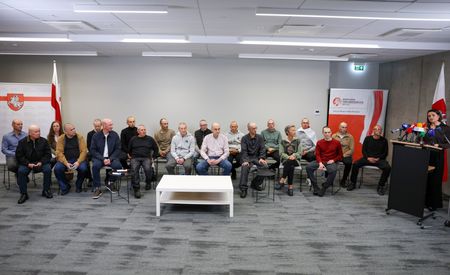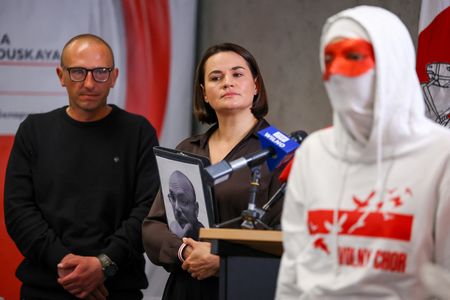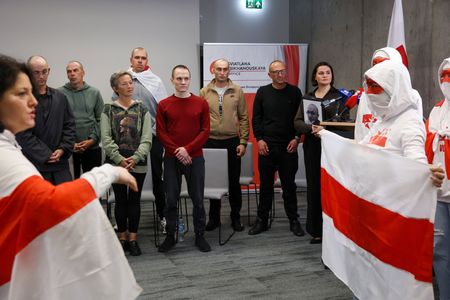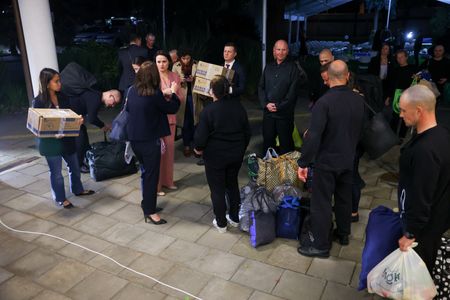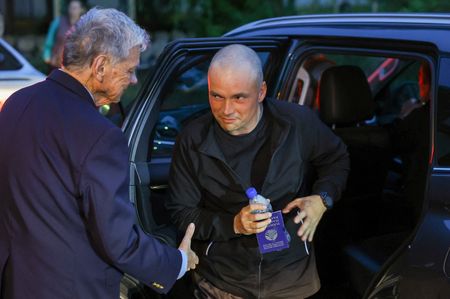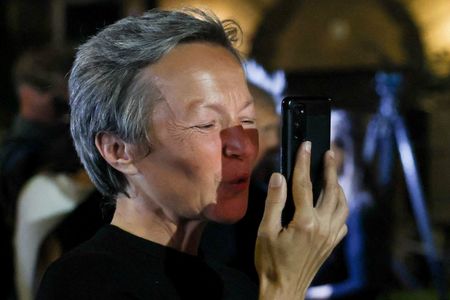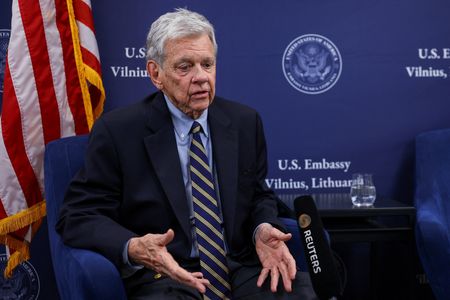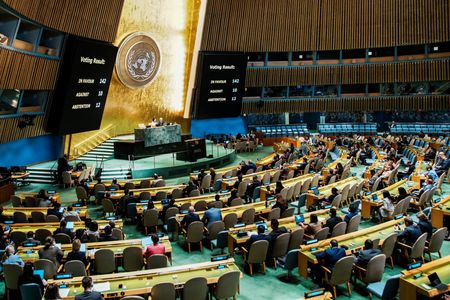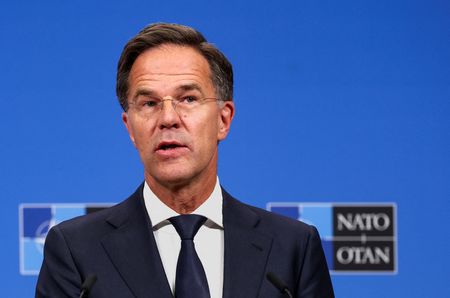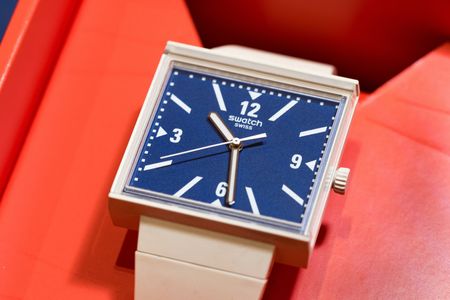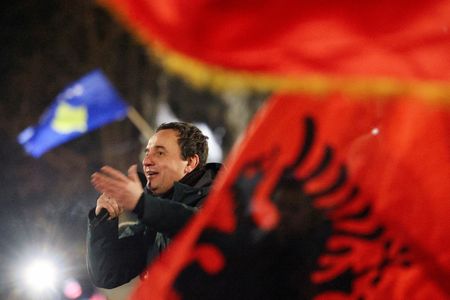By Andrius Sytas
VILNIUS (Reuters) – Belarusian prisoners released from jail on Thursday and exiled to Lithuania thanked U.S. President Donald Trump for his role but some said they would rather not have been forced to leave Belarus, especially as many were due to be freed soon anyway.
Belarus freed 52 prisoners including an EU employee after an appeal from Trump, as Washington and Minsk pursue a rapprochement viewed by many European leaders with scepticism given Minsk’s crackdown on opponents and support for Russia’s war in Ukraine. Those released were brought to Lithuania.
The exiled opposition says freed political prisoners should have the right to stay in Belarus rather than submit to what it says are in effect forced deportations.
“I wanted (to go) home, to my home in Belarus. They brought me here,” one of the released prisoners, Aleksandr Mantsevich, told Reuters outside the U.S. embassy in Vilnius, where he was driven from a Belarus jail.
About half of the prisoners released on Thursday by longtime Belarusian leader Alexander Lukashenko were almost at the end of their jail terms, said senior opposition official Franak Viacorka.
“Just imagine, they were looking forward to getting free soon, and suddenly they find themselves deported, separated from family, they don’t have passports, and they can’t go back,” he said.
FREED PRISONER WHO RETURNED TO BELARUS HAS DISAPPEARED
Opposition politician Mikola Statkevich, one of the most prominent of those released, refused to enter Lithuania on Thursday and went back to Belarus.
Marina Adamovic, his wife who is in Belarus, told Reuters on Friday she had no contact with him since then.
Opposition official Viacorka said he would probably be rearrested.
“Lukashenko’s regime has a problem, because he was officially released from jail, but they cannot allow him to go home in Belarus. They will probably give him another criminal case,” Viacorka said.
Opposition leader Sviatlana Tsikhanouskaya, who herself lives in exile, said the West should demand that Lukashenko allow former political prisoners to stay in the country.
“People have to have the right to stay in Belarus,” she said.
RELEASED PRISONERS THANK TRUMP
While some prisoners would have preferred to live free in Belarus, there was also gratitude at having left prison behind.
Some of those freed, mostly men with closely cropped hair after their recent incarceration, met the media in Vilnius, relating their difficult experiences and appreciation of even the simplest of pleasures on their release, such as receiving crackers and water.
“I want to express my thanks,” said Dzmitry Kuchuk, one of the former prisoners. “If I hadn’t been pardoned, I would have remained in jail for six more years, for participating at an event in 2020 and publishing party materials.”
Speaking at the same event, Tsikhanouskaya also thanked Trump for his efforts in freeing the political prisoners, which she said was a step in the right direction, while calling for the release of all those remaining behind bars in Belarus.
However, she added: “What happened yesterday wasn’t real freedom, it was forced deportation.”
The prisoners released this week represented the biggest group pardoned by the authoritarian leader, but was far short of the 1,300 or 1,400 prisoners whose release Trump had called for.
A SACK OVER THE HEAD
Outside the U.S. embassy in Vilnius, many said they sympathised with Statkevich’s decision not to leave.
“I want to go back home. I cannot imagine my life without Belarus. I want to go home,” Larysa Shchyrakova, an opposition journalist who spent two years and eight months in jail, told Reuters.
“I don’t know if this is safe, but I really want to go home. I served out almost all of my sentence, with four months remaining, haven’t I earned the right to live at home?” she asked, crying.
Another former prisoner, Pavel Vinogradov said he was due to meet his son for the first time in four years on Saturday, but instead found himself in Lithuania.
“Yesterday, when they put a sack on my head and took me somewhere, I knew I am getting out”, he said. “I hope my wife eventually comes here, and I meet my son in the European Union.”
(Reporting by Andrius Sytas in Vilnius; writing by Andrius Sytas and Niklas Pollard; editing by Kevin Liffey and Philippa Fletcher)

